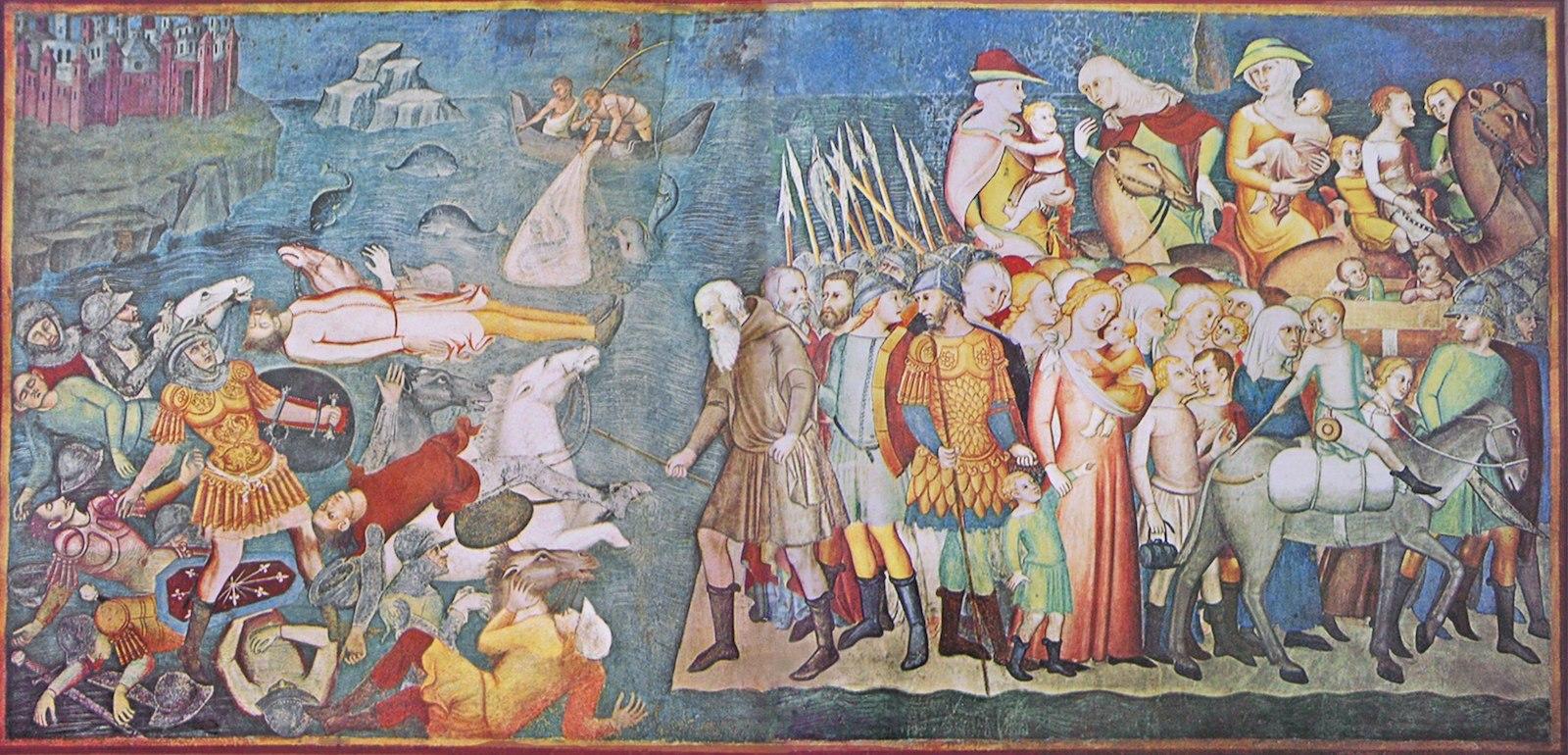Commentary on Parashat Bo, Exodus 10:1-13:16
Ours is an age of unparalleled uncertainty. While we ransack the past and its accumulated wisdom for guidance today, we also know that the degree of change in every aspect of our lives is without precedent. Groping in the dark, treading uncertainly down a path not previously taken, modern humanity doesn’t know its destination and isn’t even sure it is enjoying the trip. And we have good cause for our doubts.
Consider the degree of changes that this century alone has witnessed. At the turn of the 20th century, wars were fought using foot soldiers, ships and bullets. Tanks, planes, missiles, nuclear bombs, space satellites, submarines, all of these techniques of killing are new to our time.
Advances in Science
We think nothing of picking up a phone and calling anywhere in the world, we schedule a flight halfway around the globe and get there within hours. We are preceded by the forms we had our office fax, which arrive there with the speed of the spoken word! If we like something we read, we copy it —no big deal. Few type anymore, at least not into typewriters. When I was a freshman in college, only the wealthy students had electric typewriters. Now everybody has their own personal computer.
Advances in science have extended human life almost to its limits, have burned a hole through the ozone layer, have provided us with Agent Orange and penicillin. We now expend great skill and energy to teach developmentally-disabled children, and abandon pregnant teenagers to their own resources.
With your help, My Jewish Learning can provide endless opportunities for learning, connection and discovery.
At the turn of the century, men were secretaries and women stayed at home. Now women are secretaries and no one is at home. Women can vote, and female politicians act just like their male counterparts (surprise!). Men and women no longer have an unwritten code telling them how to act with each other. The divorce rate is at a record high, which just might also mean that unhappy marriages are at a record low.
In every area of human life, we find murky transitions–we don’t have the comfortable consensus and social standards that guided our grandparents a hundred years ago. We don’t know where we are going, and we’re not sure we want to take the trip at all.
That same situation faced Moses and the children of Israel when God commanded them to leave Egypt. Granted, slavery was bad. People suffered terribly from its oppression.The Jews were not allowed to have male children, the work was a great strain. Yet it was also a pattern of life that had endured for four hundred years, something the Jews knew from the inside. There were no surprises, no unpredictable moments.
And then came the offer of freedom, enticing and disruptive. To be free meant being able to choose, and also meant having to choose from a confusing and paralyzing number of options. Life would be more interesting, perhaps, but it would never be as simple.
Where to Worship God
Moses summarized well when he explained to Pharaoh that “we do not know with what we are to worship the Lord until we arrive there.” On the surface, he meant that remark to keep Pharaoh in the dark. Ironically, however, Moses himself wasn’t sure where they were to worship God. Uncertain of their destination, not knowing what they were to do when they got there, the Jews had to be willing to live with the burden of freedom–the power to make choices and to take responsibility. Ultimately, freedom is the ability to take responsibility for life and its direction.
In our own generation, we face that same crossroads. The traumas and opportunities of modernity can excite and terrify, beckon with the enticements of new possibilities and chasten with complexity and confusion. No matter. The future is ours if we are willing to throw ourselves into the task with our hearts, minds and hands. We can build a vibrant Jewish future, but it will take effort. Support for synagogues, afternoon religious schools, day schools and Jewish universities and seminaries are essential to help us fashion tomorrow’s Jewish community.
Equally important is the perspective of the seeking Jew. A willingness to wrestle with difficult questions, with imponderable mysteries and with the marvel of life itself is the prerequisite for spiritual Jewish growth. It takes some courage to enter a synagogue and stay there long enough, week after week, to learn the service. It takes courage to sign up for an adult education class or to meet with a Rabbi. But there is no substitute for bravery. In the words of the great philosopher Franz Rosenzweig (20th century Germany) “The Jewish individual needs nothing but readiness.” Are you ready?
Provided by the Ziegler School of Rabbinic Studies, which ordains Conservative rabbis at the American Jewish University.
Torah
Pronunced: TORE-uh, Origin: Hebrew, the Five Books of Moses.



